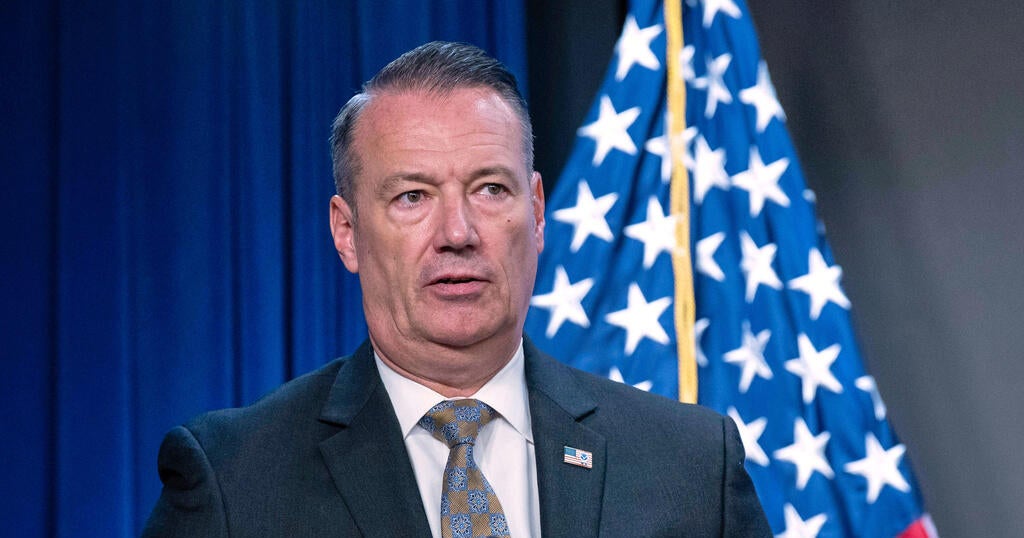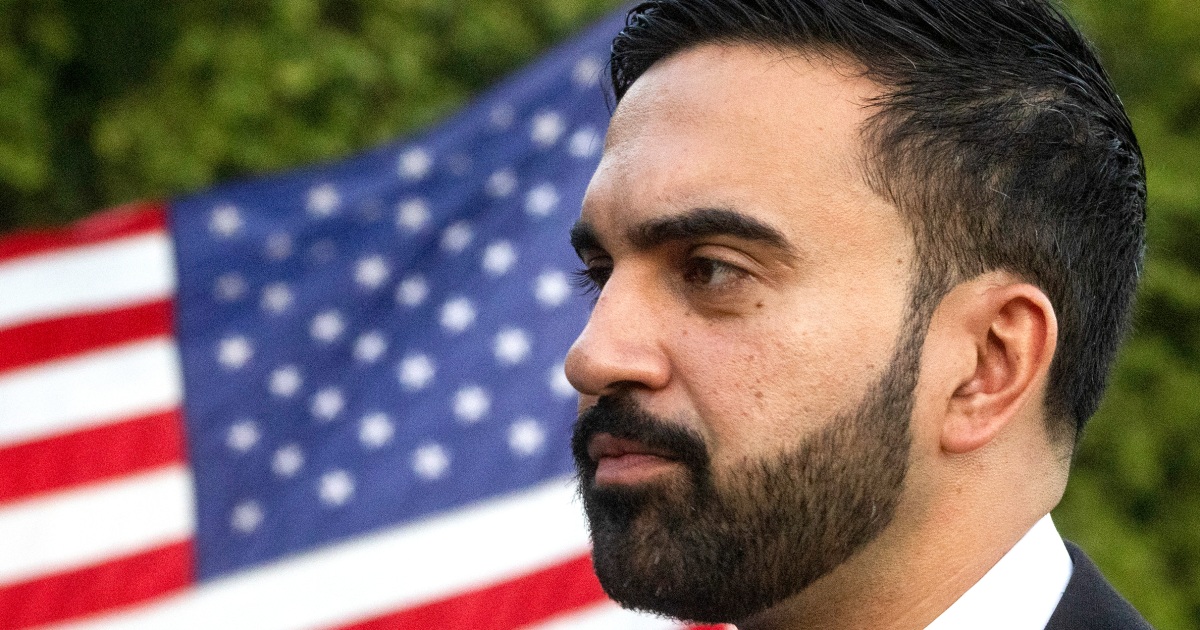Family members and lawyers of immigrants detained by U.S. Immigration and Customs Enforcement at the agency’s office in Burlington, Massachusetts, say their clients have been held for days in overcrowded holding cells with inadequate and unclean drinking water, little food and no opportunity to bathe.
One man, Nexan Aroldo Asencio, has even been forced to sleep on the wet, foul-smelling floor of the bathroom, according to his wife.
“He said, ‘It’s horrible here in Burlington: I’m sleeping on the bathroom floor. It smells like piss. It smells like poop,'” Christina Maria Toledo, Aroldo Ascencio’s wife, told USA TODAY.
“‘Everyone’s coming in and out. It’s so packed. The only thing they gave me crackers and water that was dirty,'” she said her husband told her.
Derege Demissie, a lawyer who has represented several people who have been held in the facility, told USA TODAY the conditions are “untenable.”
“They’re atrocious, they’re just ridiculous,” he said. “They had at one point up to 18 women there in a small room, with one toilet, and there’s a camera over the toilet.
“They don’t have a bed. They don’t have a blanket. They don’t have a pillow. They have only a mylar blanket like you get in the marathon.”
The comments paint a similar portrait to the description given by Marcelo Gomes da Silva, an 11th grader at Milford High School in Milford, Massachusetts, who was held in the Burlington ICE facility for six days. Lawyers for da Silva and other detainees say the holding cells are overflowing because recent widespread ICE raids have brought in more immigrants than ICE’s facilities are equipped to handle.
“Nobody deserves to be down there,” da Silva, 18, told reporters upon his June 5 release. “You sleep on concrete floors. The bathroom – I have to use the bathroom in the open with like 35-year-old men. It’s humiliating.”
In a statement, ICE contradicted some of the claims by detainees and noted that their stays are temporary.
“The ICE field office in Burlington is intended to hold detainees while they are going through the administrative intake process,” the agency said in an emailed response to USA TODAY. “Afterwards, they are usually moved to a detention facility. There are occasions where detainees might need to stay at the Burlington office for a short period that might exceed the anticipated administrative processing time. While these instances are a rarity, the Burlington field office is equipped to facilitate a short-term stay when necessary. Detainees pending processing are given ample food, regular access to phones, showers and legal representation as well as medical care when needed.”
Immigration raids cause overcrowding
The ICE Boston field office in Burlington, Massachusetts, looks like any suburban office: a low-slung, concrete and dark-glass building that could just as easily be a school or customer call center. If ICE detention facilities are the equivalent of jail, where one is held during court proceedings, the office is the police station. The detainees normally spend a few hours there while they’re being processed and awaiting transfer.
But ICE has recently been conducting raids in Massachusetts that brought in nearly 1,500 undocumented immigrants by June 3. The arrests have caused widespread fear among immigrants in Massachusetts towns such as Milford.
Plymouth County Correctional Facility, in Plymouth, Massachusetts, is the only ICE detention center in the state. The number of ICE detainees there more than doubled in the first three months of this year, according to an April 10 report from WCVB.
The unusually large influx of immigrants in detention meant a backlog was created at the office in Burlington, causing people arrested on an immigration violation to be held for days in a facility unequipped for the purpose, according to lawyers for the detainees.
“This is not set up for overnight detention,” Demissie said. “It’s just a holding place to process people for a few hours, but they’ve arrested so many people, they’ve created an overcrowding situation.”
Those caught in the dragnet are often surprised to be stuck in a holding cell for days on end.
“He was there the whole time, six days, and he was supposed to be there one to three hours,” said Coleen Greco, the mother of one of Gomes da Silva’s volleyball teammates.
“Two days, he was sleeping on the bathroom floor,” Aroldo Asencio’s wife Toledo said he told her. “It was a small room and it had a toilet and a sink, but it was always wet the floor, it looked like it was piss everywhere and it stunk, he said.”
After some people were transferred out of the facility, Aroldo Asencio was transferred from the bathroom to a holding cell.
Gomes da Silva said after his release on June 5 that there were approximately 40 men in a windowless holding cell without beds.
That’s the room Aroldo Asencio was moved to after his first two nights in Burlington. Among his cellmates was Gomes da Silva, a fellow Milford resident. Gomes da Silva sent Toledo a voice memo in which he stated, “Your husband was treated just like everyone there with no respect – they treated all of us inhumanely.”
Like Gomes da Silva, Aroldo Asencio said he had no access to a shower in Burlington, Massachusetts. His first shower came after he was transferred to a longer-term detention facility in Vermont, four and a half days later.
“He wasn’t able to do anything, not brush his teeth, nothing,” Toledo said.
“They have no sanitary products, like soap,” said Demissie, the immigration lawyer who had several clients in the facility.
For a pillow, Gomes da Silva told his volleyball coach, Andrew Mainini, he used his shoes. The metallic blanket was so thin that he was able to fold it up into a bracelet to bring home with him as a souvenir.
‘I don’t want cake, I want my daddy’
Aroldo Asencio is an immigrant from Guatemala who works as a framer, building houses. He and his wife, who is a native-born U.S. citizen from New Jersey, started a construction business in March. They have two four-year-old sons and Aroldo Asencio has already obtained an I-130, a document that recognizes his marriage to a citizen and is a step in the process of applying for a green card.
According to ICE, of the 1,500 immigrants arrested in Massachusetts before June 3, just under 800 of them have criminal records in the United States or abroad.
Aroldo Asencio has no criminal record, Toledo said. He was arrested by ICE agents on May 30 who were looking for his brother Victor, who got arrested for driving under the influence of alcohol last year.
Shortly after Aroldo Asencio left for work that morning, Toledo heard her 4-year-old son Damian screaming, “Daddy!” because his father was outside. She and her twin sons watched the ICE agents arrest her husband.
“It was one officer that went to him and another one, maybe 10 seconds later, grabbed him aggressively, went to put cuffs on,” she recalled. “I said, ‘Why you being so aggressive? He’s not resisting.’ His shirt was ripped. And another officer went to grab him, and they’re being rough with him. And I’m telling them, ‘He’s not fighting, you don’t need to grab him. And my kids are watching. My kids have asthma, and I don’t need them to be crying the way they are.’”
The reason the arrest occurred right in front of their home, Toledo explained, is that when ICE stopped Aroldo Asencio, he didn’t know who they were and he ran home.
“He gets pulled over, but when he looks back, it’s just a regular SUV. But all he sees is people running out of it with masks on. So he gets scared and runs off, and they’re yelling ‘Victor,’ but he’s not Victor.”
Aroldo Asencio and Toledo explained who he was and shared his immigration status, but the ICE agents arrested him anyway.
“They asked about his status, and I’m like, ‘He has an approved I-130. And they said, ‘If you show us, we’ll let him go,’ Toledo said. But even after she showed them the paperwork, they didn’t release him.
Instead, he was transported to the police station and then to Hartford, Connecticut, and later to Burlington, without notifying his wife.
“It was two days I didn’t know anything about him,” Toledo recalled. Eventually, he was able to call her from detention at the ICE office in Burlington.
Toledo says her children, whose fourth birthday her husband missed on June 11, remain disturbed by what happened to their father and his ongoing absence.
“My son Jhon is the one that’s very attached to his father,” Toledo said. “He didn’t want to blow out the candles on his birthday, because he said, ”I don’t want cake, I want my daddy.’”
Demissie represents a client, Kary Diaz Martinez, an immigrant from the Dominican Republic whom he said is also married to a U.S. citizen and has no criminal record.
At a deportation hearing in Boston on June 3, Martinez was released on her own recognizance by a judge, but ICE arrested her when she exited.
“She did what she was supposed to do: appeared at her hearing,” Demissie noted. “In the meantime, she’s married to a U.S. citizen and would be entitled to seek permanent residency here through what is called an adjustment of status. ICE is basically blocking that whole process.”
“There is no reason to arrest her,” Demissie continued, adding that the “inhumane conditions” violated her constitutional rights.
Demissie filed a motion to get Martinez released on the grounds that the conditions in Burlington were inhumane. ICE then found room for her in a Chittenden, Vermont detention facility. They allowed Demissie to meet with this client at a courthouse, after refusing to let them meet in person.
‘Like cat food’
A constant theme in the testimony of ICE detainees in Burlington is the extreme inadequacy of the food and water.
“When they asked for more food or water, they wouldn’t give it to them,” Toledo said, citing her conversations with her husband.
“They described it as like cat food,” Demissie said, referring to his clients’ description of the food they were given.
That may be because the building lacks the equipment needed for cooking.
“We have no kitchens and no dining rooms, and therefore we cannot keep people overnight or over the weekend,” Bruce Chadbourne, then-New England regional director of ICE, said at a public meeting in 2007.
ICE did not respond to a request from USA TODAY to verify if this is still the case.
In response to an inquiry for a previous story on Gomes da Silva’s conditions, ICE said he was provided meals, including sandwiches.
Whatever Gomes da Silva ate in captivity, it clearly wasn’t enough, according to Mainini, his volleyball coach.
“He seemed thin,” said Mainini, who saw Gomes da Silva the night he was released. “As someone who works out with him and sees him daily, he looked thinner than just six days earlier. And it was pretty noticeable in his face, specifically.”
“ICE takes its commitment to promoting safe, secure, humane environments for those in our custody very seriously,” Assistant Secretary of Homeland Security Tricia McLaughlin said in a prior statement in response to Gomes da Silva’s allegations. “ICE is regularly audited and inspected by external agencies to ensure that all ICE facilities comply with performance-based national detention standards.”
Among the traumas Gomes da Silva described to Greco was that ICE asked his cellmates to sign papers in English, which they did not understand. Gomes da Silva speaks Portuguese and Spanish, so he translated the documents, which were often deportation orders. Some of the men then broke down in tears when he told them what the papers said.
Greco said that Gomes da Silva emerged from captivity famished and immediately ordered a 20-piece chicken McNuggets from McDonald’s.
“He talked the entire ride home,” said Greco, who picked him up because Gomes da Silva’s parents are afraid to leave their house and risk ICE arresting them. (His father was the target when Gomes da Silva was pulled over, according to ICE.)
“I said, ‘You don’t have to talk to me,'” the family friend recalled. “He said, ‘No, I want to tell all these stories.'”








